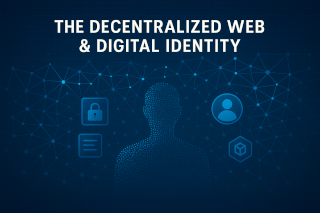The Decentralized Web & Digital Identity: A New Era of Internet Freedom
In the early days of the internet, it was a wild and open frontier—a digital landscape with few rules and endless possibilities. Fast forward a few decades, and we find ourselves in a tightly controlled online ecosystem dominated by a handful of corporations. From social media platforms to search engines and cloud services, much of what we do online flows through centralized systems. But a new movement is underway—one that promises to return power to the people. It’s called the decentralized web, and at the heart of it lies a revolution in digital identity.
What Is the Decentralized Web?
The decentralized web (Web3) is a vision for an internet that is open, secure, and not controlled by any single entity. Instead of relying on central servers and gatekeepers, it uses blockchain technology, peer-to-peer networks, and decentralized protocols to create a more democratic and resilient web.
Think of it like this: instead of storing your files, data, and identity on someone else’s server (like Google or Facebook), you store them in a decentralized network where you have control. Platforms like IPFS (InterPlanetary File System), Ethereum, and Solid are just a few examples of technologies enabling this shift.
Why Digital Identity Matters
Right now, your digital identity is spread across countless platforms. You probably have dozens of usernames, passwords, and profiles, all managed by different companies. Every time you create a new account, you’re essentially handing over another piece of your personal data.
A decentralized digital identity flips that model on its head. Instead of having your identity fragmented and controlled by third parties, you have one secure, self-sovereign identity that you own and manage.
This kind of identity allows you to:
- Log in anywhere without usernames and passwords
- Control who sees your data and what they can do with it
- Prove your identity without revealing more than necessary (thanks to zero-knowledge proofs)
- Build trust online without relying on intermediaries
Real-World Use Cases
- Healthcare: Share your medical history with a doctor in seconds—without giving them ongoing access to all your records.
- Finance: Apply for a loan with a verified digital ID, no need for a mountain of paperwork.
- Education: Keep all your degrees, certifications, and skills in a tamper-proof wallet you control.
- Social Media: Own your followers and your content. Move your community with you across platforms if you choose.
Challenges Ahead
Of course, we’re still early in this journey. There are real hurdles to overcome:
- Usability: Blockchain wallets and decentralized apps (dApps) still aren’t user-friendly for most people.
- Scalability: Decentralized systems must match the speed and efficiency of today’s centralized giants.
- Regulation: Governments are still figuring out how to handle decentralized identities in a legal context.
- Adoption: For this system to thrive, developers, users, and businesses must buy in.
The Bottom Line
The decentralized web and digital identity are more than tech buzzwords—they’re part of a growing movement to build an internet that respects privacy, promotes freedom, and gives control back to individuals.
If you’re tired of surrendering your data to big tech, keep an eye on this space. The tools are emerging. The momentum is building. And the next era of the internet is being written—not by corporations, but by us.
Have thoughts or questions about the decentralized web or digital identity? Drop a comment below or share your favorite projects in the space. Let’s build the future together. 🚀

Leave a Reply